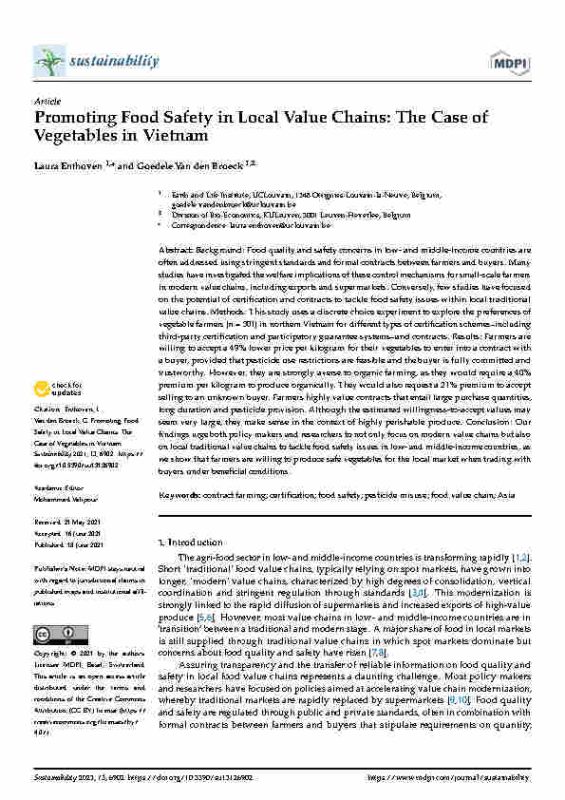Article Promoting Food Safety in Local Vegetable Value Chains in Vietnam Sustainability
04/09/2024
DOCUMENT DESCRIPTION
Abstract:
Background: Food quality and safety concerns in low- and middle-income countries are often addressed using stringent standards and formal contracts between farmers and buyers. Many studies have investigated the welfare implications of these control mechanisms for small-scale farmers in modern value chains, including exports and supermarkets. Conversely, few studies have focused on the potential of certification and contracts to tackle food safety issues within local traditional value chains.
Methods: This study uses a discrete choice experiment to explore the preferences of vegetable farmers (n = 301) in northern Vietnam for different types of certification schemes—including third-party certification and participatory guarantee systems—and contracts.
Results: Farmers are willing to accept a 49% lower price per kilogram for their vegetables to enter into a contract with a buyer, provided that pesticide use restrictions are feasible and the buyer is fully committed and trustworthy. However, they are strongly averse to organic farming, as they would require a 40% premium per kilogram to produce organically. They would also request a 21% premium to accept selling to an unknown buyer. Farmers highly value contracts that entail large purchase quantities, long duration, and pesticide provision. Although the estimated willingness-to-accept values may seem very large, they make sense in the context of highly perishable produce.
Conclusion: Our findings urge both policymakers and researchers to not only focus on modern value chains but also on local traditional value chains to tackle food safety issues in low- and middle-income countries, as we show that farmers are willing to produce safe vegetables for the local market when trading with buyers under beneficial conditions.
Keywords: contract farming; certification; food safety; pesticide misuse; food value chain; Asia


